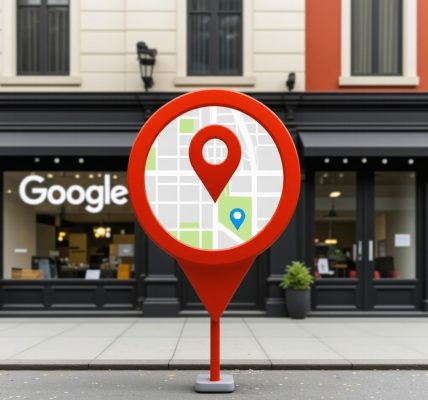Understanding Local SEO: Common Questions Answered
As a business owner, the concept of Local SEO can often feel overwhelming. With the rapid evolution of digital marketing, understanding how to optimize your online presence for local visibility is essential for success. In this article, we’ll address some of the most frequently asked questions regarding Local SEO, providing you with the insights needed to enhance your business’s online performance.
What is Local SEO and Why is it Important?
Local SEO refers to the process of optimizing your online presence to attract more business from relevant local searches. This includes optimizing your Google Business Profile, local citations, and customer reviews. The importance of Local SEO cannot be overstated; it helps businesses stand out in local search results, driving traffic and increasing sales. For instance, a well-optimized Google Business Profile can significantly improve your chances of appearing in the coveted local 3-pack, thereby enhancing your visibility to potential customers.
How Do I Optimize My Google Business Profile?
Optimizing your Google Business Profile effectively is crucial for achieving higher rankings in local search results. Key steps include:
- Claim Your Listing: Ensure your business is verified by claiming your Google Business Profile.
- Fill Out All Information: Complete every section of your profile, including your address, phone number, business hours, and services offered.
- Use Relevant Keywords: Incorporate local keywords that potential customers might use when searching for your services.
- Encourage Customer Reviews: Positive reviews can enhance your credibility and influence local search rankings.
For more detailed strategies, check out our post on how to optimize your Google Business listing effectively.
What Are the Key Ranking Factors for Local SEO?
Several factors influence your local search rankings. Some of the most prominent include:
- Proximity: The distance between your business and the searcher’s location plays a significant role.
- Relevance: Your business needs to be relevant to the search query to be considered a suitable match.
- Prominence: This refers to how well-known your business is, which can be enhanced through backlinks and positive reviews.
Understanding these factors can help you tailor your Local SEO strategies to achieve better results. To dive deeper, explore our article on GMB ranking factors and how they impact your visibility.
How Can I Track My Local SEO Performance?
Monitoring your Local SEO performance is vital to understand what’s working and what needs improvement. Tools like Google Analytics and Google Search Console can provide valuable insights into your website’s traffic and search performance. Additionally, tracking your Google Business Profile metrics, such as clicks, calls, and direction requests, can give you an idea of how effectively your profile is performing.
By answering these common Local SEO FAQs, you can equip yourself with the knowledge necessary to enhance your online presence and drive more local traffic to your business. For comprehensive strategies, visit our page on understanding local SEO for small businesses.
Strategies for Effective Local SEO Implementation
To fully leverage the power of Local SEO, businesses must adopt various strategies that align with the ever-evolving search algorithms. Implementing these strategies not only enhances your visibility but also drives customer engagement and increases conversion rates. Here, we explore key tactics that can significantly improve your local online presence.
Utilizing Local Keywords for Maximum Impact
One of the foundational aspects of Local SEO is the effective use of local keywords. These keywords should reflect the terms potential customers use when searching for your services. To find the best local keywords, consider using tools such as Google Keyword Planner or SEMrush. Incorporate these keywords into your website content, Google Business Profile, and even your social media posts. This approach ensures that your business appears in relevant searches, increasing the likelihood of attracting local traffic.
Maintaining NAP Consistency Across Platforms
NAP (Name, Address, Phone number) consistency is vital for local search optimization. Inconsistent information across different platforms can confuse search engines and users alike, negatively impacting your rankings. Ensure your NAP details are consistent not only on your website but across all your business listings, directories, and social media profiles. For more insights on achieving NAP citation consistency, refer to our post on achieving NAP citation consistency.
Leveraging Customer Reviews for Enhanced Credibility
Customer reviews play a significant role in local search rankings and can influence potential customers’ decisions. Encourage your satisfied customers to leave positive reviews on your Google Business Profile and other review platforms. Responding to reviews, both positive and negative, demonstrates your commitment to customer service and can build trust with prospective clients. For tips on generating customer reviews effectively, check out our article on customer reviews for GMB optimization.
Monitoring and Adjusting Your Local SEO Strategy
Local SEO is not a one-time effort but an ongoing process that requires regular monitoring and adjustment. By keeping track of your online performance, you can identify what strategies are working and what needs improvement.
Key Metrics to Track for Local SEO Success
To gauge the effectiveness of your Local SEO efforts, focus on specific metrics, including:
- Website Traffic: Analyze the amount of organic traffic coming from local searches.
- Conversion Rates: Monitor how many visitors take desired actions, such as calling your business or filling out a contact form.
- Google Business Profile Insights: Review metrics such as views, clicks, and direction requests to understand how users interact with your profile.
Using tools like Google Analytics and Google My Business Insights can help you track these metrics effectively. For a deeper dive into tracking performance, consider exploring our guide on tracking GMB performance metrics.
Adjusting Strategies Based on Data Insights
Once you have collected and analyzed your data, use the insights to make informed decisions about your Local SEO strategies. This might involve tweaking your keyword strategy, enhancing your content, or even adjusting your customer engagement tactics. Regularly revisiting and refining your approach will ensure that you stay competitive and continue to attract local customers.
In conclusion, mastering Local SEO is essential for any business aiming to thrive in a competitive marketplace. By applying these strategies, you can enhance your online visibility and connect with your local audience more effectively. For further reading on comprehensive Local SEO optimization, visit our page on comprehensive local SEO optimization techniques.
Enhancing Local SEO Through Content Optimization
Content optimization is crucial for improving your local search visibility. By crafting valuable content that resonates with your target audience, you can engage users and encourage them to interact with your business. Consider writing blog posts that address local issues or highlight community events. This not only positions you as an authority in your area but also helps in acquiring local backlinks, which are essential for boosting your Google Business Profile.
Creating Location-Specific Landing Pages
One effective strategy is to create location-specific landing pages tailored to each service area. This allows you to target multiple local keywords effectively. Each page should contain relevant content, optimized titles, and meta descriptions. It’s also beneficial to include local testimonials and case studies that showcase your work within specific communities. For effective guidelines on optimizing your Google Business listing, refer to our post on optimizing your Google Business listing.
Utilizing Local SEO Tools for Analysis
To enhance your local SEO efforts, leverage various tools that offer insights and analytics. Tools like Moz, Ahrefs, and SEMrush provide valuable data on keyword rankings, backlinks, and competition analysis. Regularly analyzing your local SEO performance using these tools can help you identify areas for improvement and adapt your strategies accordingly. For a comprehensive overview of essential local SEO tools, check our article on best tools for GMB SEO.
Building a Strong Backlink Profile for Local Authority
A robust backlink profile is vital for establishing your business as a credible authority in your locality. Focus on acquiring backlinks from reputable local websites, such as local news outlets, blogs, and business directories. Collaborate with local influencers or participate in community events to gain exposure and backlinks. The more reputable sites that link to your business, the higher your site will rank in local search results. For more insights on improving local rankings through backlinks, visit our post on GMB backlink building strategies.
Engaging with Local Community Through Social Media
Social media platforms are powerful tools for promoting local businesses. Engage with your community by sharing local news, events, and user-generated content. Platforms like Facebook and Instagram allow you to connect with your audience, build relationships, and encourage shares and interactions that can enhance your visibility. Regularly posting engaging content can also help drive traffic to your website, which is an important ranking factor for search engines.
Optimizing for Voice Search in Local SEO
With the rise of voice search, optimizing your content for voice queries is a smart move for local SEO. Voice searches tend to be longer and more conversational, so consider incorporating natural language into your content. Focus on answering common questions related to your business and services, as this can improve your chances of appearing in voice search results. To learn more about the impact of voice search, explore our article on the importance of local SEO.
Conclusion: Continuous Improvement for Local SEO Success
In the competitive landscape of local search, continuous improvement is key to sustaining and enhancing your visibility. Regularly updating your strategies based on performance metrics and industry trends will ensure that your business remains relevant and easily discoverable by local customers. By implementing these advanced local SEO techniques, you can effectively boost your online presence and drive more local traffic to your business.
Leveraging Google My Business (GMB) Features
Google My Business is an essential tool for local SEO, offering features that can significantly boost visibility. Utilize GMB posts to share updates, promotions, and events that keep your audience engaged. Regular updates signal to Google that your business is active, which can positively impact your rankings. Additionally, ensure your business categories are accurate and comprehensive, as they help Google understand the nature of your business. For tips on maximizing GMB, refer to our guide on mastering Google Business SEO.
Encouraging Customer Reviews for Social Proof
Customer reviews play a critical role in local SEO. They not only enhance credibility but also influence search rankings. Encourage your satisfied customers to leave positive reviews on your GMB profile and other review platforms. Responding to reviews—both positive and negative—demonstrates that you value customer feedback, which can foster trust and encourage more reviews. For strategies on how to effectively generate reviews, check out our post on achieving customer reviews for GMB optimization.
Content Marketing Strategies to Boost Local Engagement
Implementing a robust content marketing strategy can enhance your local SEO efforts. Start a blog that focuses on local topics, events, and community news. This not only positions your business as a local authority but also attracts backlinks from local websites. Incorporating local keywords throughout your content will further optimize it for search engines. For effective content strategies, explore our article on creating a winning local SEO strategy.
Utilizing Local Keywords for Better Targeting
Incorporate local keywords into your website’s content, meta descriptions, and title tags. Tools like Google Keyword Planner or Ubersuggest can help you identify the right keywords to target. Focus on long-tail keywords that reflect local intent, such as “best pizza in [your city]” or “affordable plumbing services near me.” This targeted approach can lead to higher conversion rates as it attracts users who are closer to making a purchasing decision.
Analyzing and Adapting Your Local SEO Strategy
Regular analysis of your local SEO strategy is crucial for sustained success. Use tools like Google Analytics and Google Search Console to track user behavior, traffic sources, and performance metrics. Pay attention to which keywords are driving traffic and where you may be losing potential customers. Adapting your strategy based on this data will help you refine your approach and stay competitive in local search results. For a deeper dive into analytics, refer to our post on tracking GMB performance metrics for growth.
Building Relationships with Local Businesses
Collaborating with other local businesses can enhance your visibility and credibility. Consider cross-promotions, joint events, or partnerships that can benefit both parties. These collaborations not only expand your reach but also provide opportunities for acquiring valuable backlinks. By fostering community relationships, you create a supportive network that can enhance your business’s reputation and visibility in local search.
Frequently Asked Questions About Local SEO
What is local SEO and why is it important?
Local SEO is the practice of optimizing your online presence to attract more business from relevant local searches. It is crucial because it helps businesses connect with customers in their geographic area, improving visibility in search results and driving more foot traffic to physical locations.
How can I improve my Google My Business listing?
To enhance your Google My Business listing, ensure that all information is accurate and complete, including your business name, address, phone number, and hours of operation. Regularly post updates, respond to customer reviews, and include high-quality images to engage potential customers.
What are local keywords, and how do I find them?
Local keywords are search terms that include geographic identifiers, such as city names or neighborhoods. You can find local keywords using tools like Google Keyword Planner, Ubersuggest, or by analyzing competitor websites and local search trends.
How do online reviews impact local SEO?
Online reviews significantly impact local SEO by enhancing your business’s credibility and influencing potential customers. Positive reviews can improve your ranking in local search results, while responding to reviews demonstrates your commitment to customer service.
What is the role of backlinks in local SEO?
Backlinks are links from other websites to yours, and they play a vital role in local SEO by signaling to search engines that your site is a trusted resource. Building relationships with local businesses and obtaining backlinks from local news sites or blogs can enhance your SEO efforts.
How often should I post on my blog for local SEO?
Regular blog posting is essential for maintaining engagement. Aim for at least one high-quality post per week that addresses local topics, events, and news to establish authority and encourage local backlinks.
Can social media influence local SEO?
Yes, social media can influence local SEO by increasing brand visibility and engagement. Sharing local content, interacting with your audience, and promoting your Google My Business listing on social platforms can indirectly enhance your local search presence.
What is the best way to track my local SEO performance?
To track your local SEO performance, use tools like Google Analytics, Google Search Console, and specialized local SEO software. Monitor metrics such as organic traffic, keyword rankings, and GMB insights to understand your strategy’s effectiveness.
Authority Resources for Local SEO
For those looking to deepen their understanding of local SEO, consider exploring the following trusted resources:
- Moz’s Beginner’s Guide to SEO – A comprehensive guide that covers the basics of SEO, including local strategies.
- Ahrefs Local SEO Guide – Detailed insights into optimizing local search performance.
- Search Engine Land – Local SEO Section – A collection of articles and updates specifically focused on local search trends and tips.
- Neil Patel’s SEO Blog – Expert advice on various SEO topics, including local optimization techniques.
- Search Engine Journal – Local SEO – A resource for the latest news, strategies, and case studies in local SEO.
Conclusion
In conclusion, implementing effective local SEO strategies is essential for businesses looking to thrive in their communities. By leveraging tools like Google My Business, engaging with local content marketing, and fostering relationships within your local network, you can boost your visibility and attract more customers. Regularly analyze your performance and adapt your strategies to maintain your competitive edge. With a focused approach to local SEO, your business can achieve sustainable growth and success in the digital landscape.




I found the section on optimizing your Google Business Profile particularly insightful. In my experience working with small local businesses, claiming and fully completing the profile is often overlooked but can be a game-changer for appearing in the local 3-pack. One challenge I’ve noticed, though, is maintaining consistent NAP information across multiple directories and platforms. Inconsistent data seems to confuse both search engines and customers, undermining SEO efforts. I’m curious how others manage keeping their business info uniform, especially when handling multiple locations or franchise setups. Do you use specific tools or manual checks? Additionally, the emphasis on encouraging and responding to customer reviews resonates with me. Genuine engagement not only boosts rankings but builds trust. I’m also intrigued by the rise of voice search optimization mentioned here—adjusting content for conversational queries could be the next frontier for local visibility. Has anyone experimented with optimizing for voice search, and how effective has it been in your particular market? Overall, this comprehensive overview highlights the importance of a multi-pronged approach to local SEO, reinforcing that it’s an ongoing process rather than a set-it-and-forget-it task.